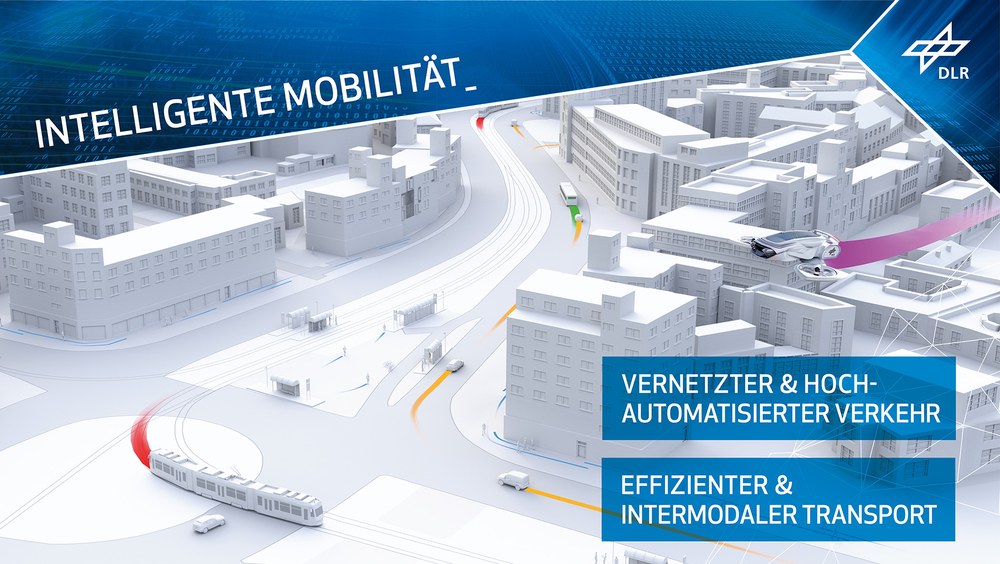Intelligent mobility

In future, transport will be automated, networked and electrically powered. Urbanisation is continuing, and cities are becoming smart. Road users will move within a common traffic area, whether their vehicles are automated or manually controlled, and regardless of whether they are travelling by road or rail, in the air or on water. The transport system must be safe, robust and efficient, no matter what the situation.
The following questions will have to be answered:
- How can automation meet the aforementioned requirements in road, rail, sea and air transport, and how can transport areas be planned effectively for that purpose?
- What overarching, self-organised cooperation schemes and organisational principles exist for a transport system that focuses on the needs of its users?
- How can technological hurdles be overcome, and synergies harnessed to best effect?
- What are the options for meeting high expectations, while also implementing the solutions in a cost-effective way?
- What role might be played by high-precision simulation based on intelligently linked data?
The German Aerospace Center (Deutsches Zentrum für Luft- und Raumfahrt; DLR) is addressing these and other issues in its projects within the cross-sectoral area of intelligent mobility, and thus supporting industry and policy-makers in establishing Germany as a leading market for and provider of automated transport.
